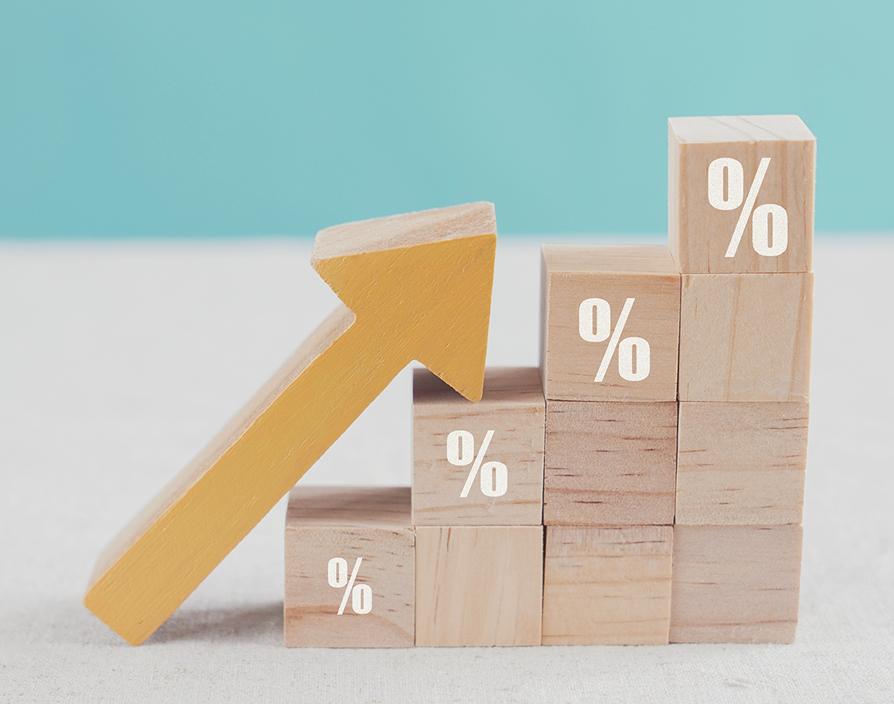Confidence in small businesses has slumped in the second quarter following rising interest rates and tough economic conditions. The UK Small Business Index (SBI) from the Federation of Small Businesses (FSB) fell to -14.2 points in Q2 2023, down from –2.8 points Q1 2023. The decline reflects the downbeat economic conditions small businesses had to navigate over the quarter along with inflation. Inflation has remained stubbornly high in the UK, forcing the Bank of England to hike rates faster and higher than many analysts had predicted. Most economists think the Bank will raise the bank rate to a peak at 5.75 per cent. Although the figures were less optimistic than in the first quarter, it was still significantly more positive than in the same period last year when confidence plummeted in the face of Russia’s invasion of Ukraine and the steep rise in inflation.
Martin McTague, FSB’s National Chair, said: “Although the upturn in small firms’ confidence from the first quarter didn’t carry over into the second quarter of the year, the message from our research is that small firms’ confidence in the future is looking rosier. Over half of all small firms expect to grow over the next year, for example.” Some industries lost more confidence than others. Accommodation and food services fell by 18.1 points while wholesale and retail tumbled by 12.6 points. Manufacturing businesses were more or less in line with the all-sector confidence dropping -14.5 points.
Information and communication fell by 4.9 points to hit -19.6. Professional, scientific and technical activities, meanwhile, was the only major sector to reach positive territory, at 7.8 points, down 7.1 points from the first quarter. Two in five small firms saw revenues fall over Q2, while only one in three saw an increase. Exporters have had a better quarter, with one in three having seen a rise in export volumes compared to just over one in five in Q1. Nearly one third of firms who applied for finance were offered a rate of 11 per cent or more, a new record. Last year this was true for just 12 per cent of firms.
Looking ahead, small firms’ revenue expectations have dampened. Only 32% of small businesses in Q2 expect to see sales rise in the next three months compared to 39% in Q1. A third of small businesses (36%) expect to see a drop in sales, compared to a quarter in Q1 (26%). The medium-term outlook was slightly rosier, with half of small firms anticipating growth over the next 12 months (51%), up from 46% in the first quarter. The proportion bracing for contraction remained steady, at around one in seven (14% in Q2; 13% in Q1).
McTague added: “There are undoubtedly challenges ahead. Small firms are already feeling the impact of rate rises on their margins, and through lower consumer demand, further increases will undermine the prospects of a recovery in confidence. Small businesses are very alive to the danger that interest rate rises will overshoot the level needed to curb inflation and will instead act as a drag on economic expansion.”
85 per cent of firms said costs had risen since the same period last year amid soaring inflation and rising rates. Almost half (49%) of small businesses reported an increase in labour costs and one in five (20%) reported an increase in financing costs, up from 45% and 15% in Q1 respectively. McTague highlighted: “Amid the rate rises and sticky inflation of the second quarter, and with economic growth underwhelming at best, it’s disappointing but perhaps not surprising that the momentum from the first three months of the year petered out somewhat – but small firms are survivors, and there are positive signs in our findings.
“The proportion of small firms saying that their cost of doing business was higher than in the same period last year has eased back slightly from last quarter’s record high, which resonates with the most recent inflation figures, and offers a small sign of hope that inflation may finally be on its way to being tamed. It is also very welcome to see energy and fuel costs falling in the rankings of small firms’ most-cited barriers to growth. Small businesses have shouldered huge cost burdens, with many seeing their energy bills soar, and we would once again urge all energy companies to allow small business customers to ‘blend and extend’ their energy contracts, to take advantage of lower wholesale prices compared with this time last year.”
McTague has urged the government to take action this summer regarding late payments to help alleviate the burden on small businesses. He added: “Given the right conditions for growth, small firms have the potential to power a groundswell of economic activity. With the domestic economy the biggest perceived barrier to growth, however, they are in something of a catch-22 situation. The Government should get ahead of the curve and take the summer to plan a programme for enabling small firms to grow and invest; tackling late payment in the official response to the recent late payment consultation would forge a path to an environment where late payments are all but eliminated. Taking concrete action on late payment would help to unlock confidence in the third quarter, especially with the end of the rises in the base rate perhaps finally in view.”
Share via:








































